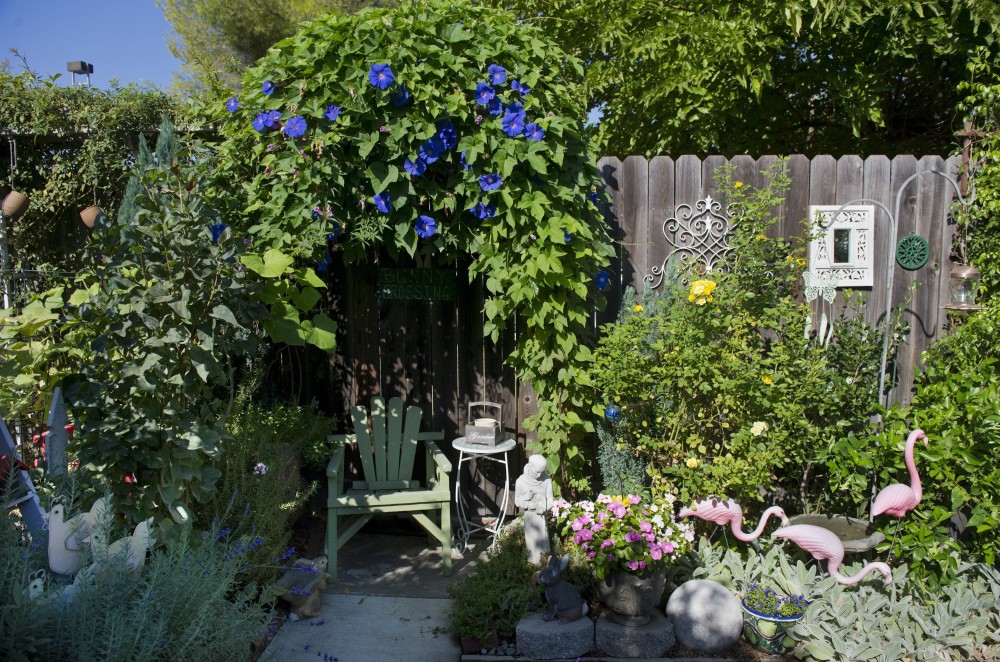By Mark Schultz
The News & Observer (Raleigh, N.C.)
WWR Article Summary (tl;dr)
GRAHAM, N.C.
A sign in Suki Roth’s basement says “Make Tea Not War.”
And across the room, in jars lining floor-to-ceiling shelves, Roth has just the tea for what ails you.
“This one’s excellent for the heart and high blood pressure,” she says of the jar labeled hawthorn.
“Ground ivy’s excellent to dry up the runny mucus we get all allergy season,” she continues, moving down the line. “Gingko’s great for the brain.”
She could go on, partly because she has a lot more jars, but also because the 67-year-old herbalist likes to share what she knows.
HERBAL MEDICINE
People have been using plants as medicine, well, since there were people.
The World Health Organization estimates 80 percent of people worldwide include herbal medicine in their health care. In Germany, between 600 and 700 plant-based medicines are prescribed by 70 percent of doctors, according to a report by the University of Maryland Medical Center.
In the United States herbal medicine is regulated by the Food and Drug Administration as supplements. Manufacturers don’t need FDA approval before putting them on the market.
The FDA requires labels to give a complete list of ingredients, serving size and active ingredient, and the name and address of the manufacturer or distributor, according to the Mayo Clinic, which encourages talking with a doctor or pharmacist before taking them.
Roth is careful to say she’s not a doctor, but she says when administered properly herbal medicines are safer than pharmaceuticals.
It’s one of the reasons she doesn’t sell online.
“It takes a long time to understand these plants,” she says. “I want to talk to the people that are using the medicine we sell here.”
VILLAGE MARKETS
Roth’s love for all things green pours out as she walks the rows of her garden and bends down to rub a lemon balm leaf between her fingers.
On her website, she says one of her earliest memories is her grandmother’s apple tree. Growing up outside New York City in the 1950s, she was enamored of plants, from the skunk cabbage to the weeping willow.
In the 1970s, traveling in Asia, Roth saw herbalists in the village markets. She came back to the United States intrigued, had two daughters, became an apprentice and started taking correspondence courses.
Today it’s Roth who teaches, lecturing and hosting visitors, including medical school faculty, at her garden and basement apothecary.
Frankie Clark, greenhouse manager at UNC Greensboro, is one of Roth’s apprentices, volunteering her labor in exchange for learning.
“It’s definitely not by the book, even though she has a ton of knowledge,” Clark says of Roth hands-on style. “A lot of it is by example. She really likes to tell stories and share knowledge.”
As Clark and others finish laying mulch for the coming weekend’s visitors, Roth stands in the shade of an elder tree. Its green blossoms will soon yield elderberries made famous by an Elton John song but known long before that as a tonic for cold and flu symptoms.
In a way, Roth’s work was in the cards.
Her father was a gastroenterologist, and she grew up with the belief that medicine helps you.
“But I didn’t relate to that kind of medicine,” she says, “because I didn’t want to wait until I was sick to be OK.”
Herbs can help when you have problems but also help prevent them, Roth says. And she thinks people, many coming to her for help with stress and depression, need plants more than ever.
“This is not new; this has been going on for thousands of years,” she says. But as a society, “we (have become) so far removed from nature and the healing nature offers.”
Roth replaced her home’s landscaped yard with medicinal plants when she moved to Graham eight years ago. She never has to go farther than her front door for her healing.
She takes herbs every day, she says, and hasn’t had a cold in 15 years.
___
SUPPLEMENT SAFETY
It’s especially important that you talk to your doctor before using herbal supplements if:
-You’re taking prescription or over-the-counter (OTC) medications. Some herbs can cause serious side effects when mixed with prescription and OTC drugs, such as aspirin, blood thinners or blood-pressure medications.
-You’re pregnant or breast-feeding. Medications that may be safe for you as an adult may be harmful to your fetus or your breast-feeding infant. As a general rule, don’t take any medications _ prescription, OTC or herbal _ when you’re pregnant or breast-feeding unless your doctor approves.
-You’re having surgery. Many herbal supplements can affect the success of surgery. Some may decrease the effectiveness of anesthetics or cause dangerous complications, such as bleeding or high blood pressure. Tell your doctor about any herbs you’re taking or considering taking as soon as you know you need surgery.
-You’re younger than 18 or older than 65. Few herbal supplements have been tested on children or have established safe doses for children. And older adults may metabolize medications differently.
If you don’t understand something on an herbal supplement’s label, ask your doctor or pharmacist for an explanation.
Source: The Mayo Clinic














































































































































































































































































































































































